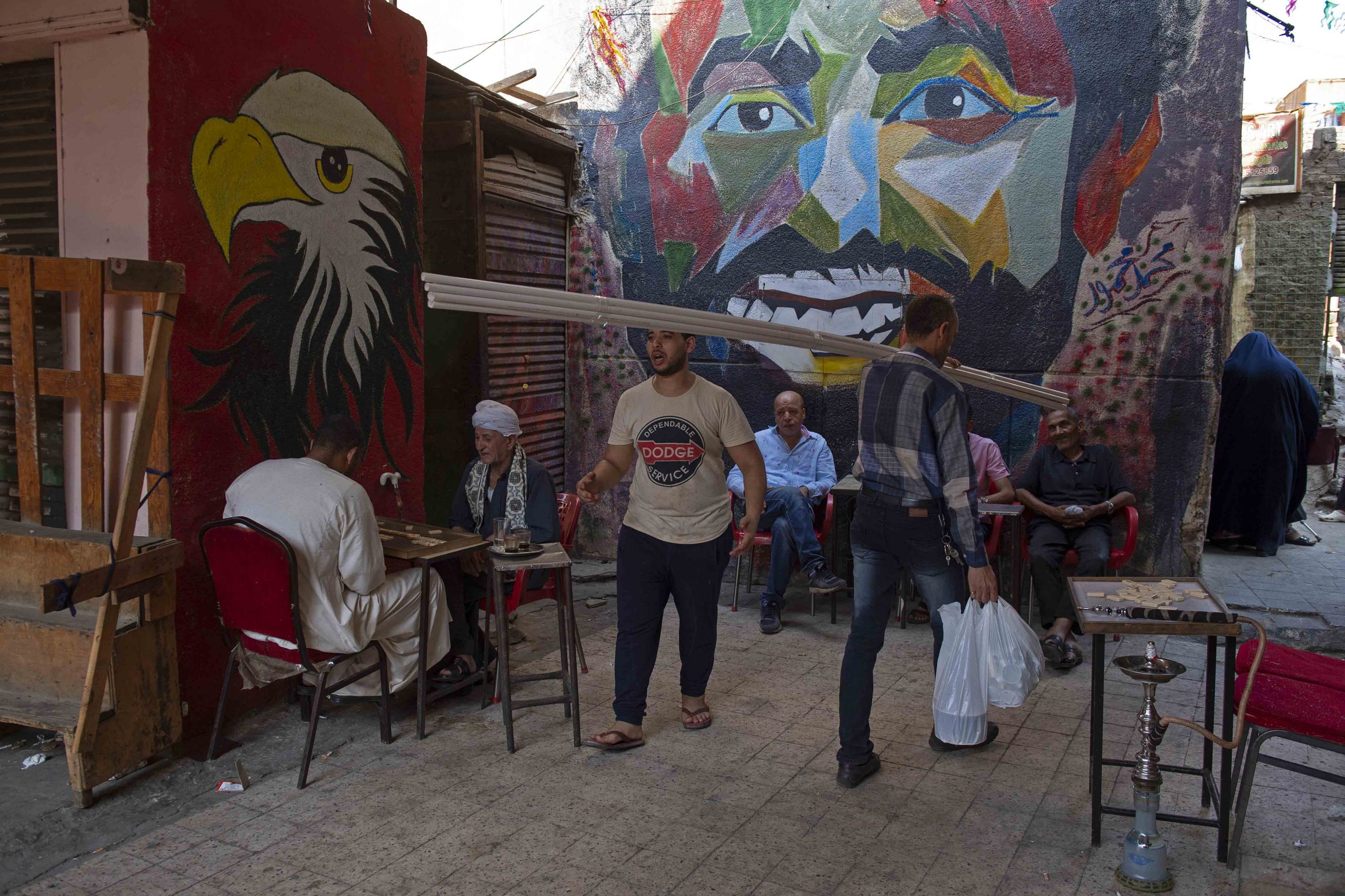Salah and Egypt score own goal supporting Warda
Egypt’s darling Mohamed Salah, adored by millions at home and abroad, picked the wrong side to support when he defended a teammate accused by numerous women of sexual harassment.
Author:
4 July 2019

It’s difficult to escape his warm and arresting smile, which is plastered all over Egypt’s capital city. The only other person who has that many pictures of himself in Cairo is President Abdel Fattah el-Sisi. But there is a huge difference between the pictures of Mohamed Salah and those of Sisi. For starters, Sisi put himself there. But it’s the love Egyptians have for Salah and his marketability as the best footballer in the world at the moment that plastered his face all over Cairo.
Sisi’s pictures look forced, awkwardly placed in government institutions and buildings. They are typical portraits of an authoritarian leader, designed to make him look like a powerful figure who watches over his people. Sisi wears a stern look that screams “don’t fuck with me”. If author George Orwell needed a model for the cover of 1984, Sisi would have done a brilliant job.
Salah’s pictures are different. They are artistic, bright, welcoming and an ode to one of the biggest superstars in sport. In one of those pictures, he is pointing to the heavens, with a message that reads: “100 million strong”. Such is his popularity, that number isn’t accurate. He has more fans than that. Salah is not just a demigod in Egypt and the rest of the Arab world, he is a global icon who is loved the world over as a result of his prodigious talent, humility and friendly personality.
The sea of red that filled Cairo International Stadium in all of Egypt’s matches in the group stage of the Africa Cup of Nations (Afcon) is largely made up of passionate fans wearing Sala’s No. 10 for the Pharaohs and his No. 11 when he is doing battle in the English Premier League for Liverpool.
Moving millions with Salah fever
Time magazine put him on one of the six covers for their 100 Most Influential People edition for 2019.
“Mo Salah is a better human being than he is a football player. And he’s one of the best football players in the world,” John Oliver, the comedian and host of HBO’s Last Week Tonight with John Oliver, writes in the magazine about the Egyptian star.
“You’d be hard-pressed to find a professional athlete in any sport less affected by their success or status than Mo, which is incredible because I can’t imagine the kind of pressure that comes with the intensity of adoration he receives. Mo is an iconic figure for Egyptians, Scousers and Muslims the world over, and yet he always comes across as a humble, thoughtful, funny man who isn’t taking any of this too seriously.
“As a footballer, he plays with an infectious joy. I’ve always wondered what it would feel like to be able to play as well as him, and watching his face light up after he does something incredible, you get the reassuring sense that it’s exactly as fun as you’d want it to be. I absolutely love him.”
Brands also love him. Adidas, DHL, Mobil, Pepsi and Vodafone have all used his image to sell their products. Oil giant Mobil hit the nail on the head in their advert, “moving millions”, which shows the effect of Salah fever.
The advert starts with Salah playing foosball. He scores and celebrates with his now famous tree yoga pose. Everyone emulates it and murals are drawn of the pose, including one that depicts Salah with angel wings.
Those wings were clipped by Salah himself when he chose to defend his Egyptian teammate Amr Warda, who is accused of sexual harassment by various women, including a minor and two wives of his former teammates in Portugal.
Egyptian Football Association flip-flops
It is alleged that Salah and Pharaohs captain Ahmed Elmohamady defended Warda and played a role in the Egyptian Football Association (EFA) backtracking on its decision to kick the PAOK FC forward out of the Egyptian team. The EFA instead said Warda would only miss Egypt’s last two group stage matches, against the Democratic Republic of the Congo (DRC) and Uganda.
In a display of ignorance and stupidity, Elmohamady celebrated his goal against the DRC by raising a 22 symbol as a tribute to Warda, who wears No. 22. Salah took it up a notch with a series of tweets that defended his disgraced teammate.
Shunning and punishing Warda would have definitely been the answer and sent a strong message that nobody is untouchable. The accusations levelled against Warda are serious enough for him to be kicked out of the Egyptian national team and never wear their jersey again.
The matter was brought to the fore and public consciousness by Egyptian model Merhan Keller, who shared lewd and abusive Instagram messages from Warda. More women followed in Keller’s footsteps, sharing their exchanges with the 25-year-old, which showed an abusive pattern from the footballer.
Old stories of previous transgressions resurfaced, from accusations that his loan stint at Feirenes in Portugal was cut short because of allegations that he sexually harassed two of his teammates’ wives to a report in Tunisia that he was kicked out of Egypt’s Olympics camp after he was reported to the police for sexual harassment.
Egypt has a sexual harassment problem
Salah’s call for people to believe in second chances and that Warda “shouldn’t be sent straight to the guillotine” is not only reckless and ill-advised, it’s also extremely problematic. In 2013, a government study found that 99.3% of the Egyptian girls and women surveyed had experienced some form of sexual harassment. The study further revealed that 82.6% of the female respondents did not feel safe on the streets.
For someone like Salah, a demigod in Egypt, and Elmohamady, captain of the Pharaohs, to side with Warda sends the wrong message. The EFA’s decision to do the right thing and then go back on that decision is disgraceful, and further proof of why women in the country said they don’t feel safe. Even the authorities don’t take their concerns seriously. Salah, Elmohamady and the EFA basically showed that women’s rights and security mean nothing to them.
The crowd that packed Cairo International Stadium on Sunday 30 June did not seem bothered either. They celebrated Salah and Elmohamady’s goals wildly in the Pharaohs’ 2-0 win over Uganda, the team’s first public appearance since Warda had been reinstated. It showed that Egypt’s coach, Javier Aguirre, was right when he said, “Amr Warda’s incident will not affect the fans’ support in the upcoming games.”
Related article:
One fan even waved a cardboard cutout of Salah with Warda. Of the numerous pictures of Salah’s face, this is the most distasteful and revealing.
It’s a terrible look on a man who enjoys cult status, the leader of the Pharaohs, who should be uniting his country towards a common goal and an association that should know better.
The reason why powerful and famous sexual offenders get away with their crimes is because there is always a group of more powerful men ready to protect them. If you protect a sexual offender, you are no different to them.
“I think we need to change the way we treat women in our culture,” Salah told Time. “It’s not optional.”
Wise words from a man who has gone and done the opposite of what he preached.

